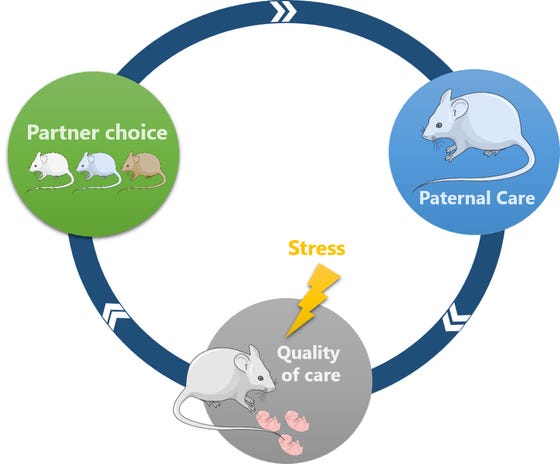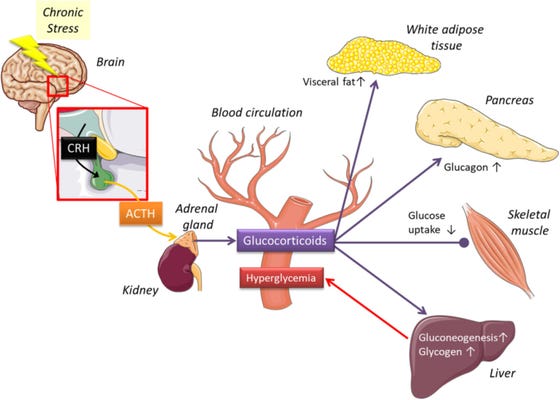Research line: Early life stress
Stress during the neonatal period can cause mental health problems later in life. In this research line, led by Michael van der Kooij (neuroscientist), we focus on the (lasting) impact that stress has on behavior and on metabolic processes. Stress-induced metabolic abnormalities are one of the keys in understanding many psychiatric disorders.
We want to decipher the paternal role during early life stress, the effects of early life stress on metabolic outcome and setting up a truly translational model, mimicking pain-related stress as it occurs at the NICU. This research line aims to bridge the gap between clinical reality and preclinical research. For instance, a major goal is to setup a realistic animal model to mimic the clinical conditions at the NICU. In order to do that we're in regular contact with colleagues at the department of Neonatology. In the future we want to determine how neonatal stress may reprogram the brain, leading to functional & metabolic impairments in later life, with the aim to develop tailor-made treatment strategies.

Recent key papers uitklapper, klik om te openen
- Van der Kooij MA, Rojas-Charry L, Givehchi M, Wolf C, Bueno D, Arndt S, Mattioni L, Tenzer S, Treccani G, Hasch A, Schmeisser MJ, Vianello C, Giacomello M, Methner A. Chronic social stress disrupts the intracellular redistribution of brain hexokinase 3 induced by shifts in peripheral glucose levels. J Mol Med, 2022, 100: 1441-1453.
- Jene T, Ruiz de Azua I, Hasch A, Klüpfel J, Deuster J, Maas M, Nijboer CH, Lutz B, Müller MB, van der Kooij MA. Chronic social stress lessens the metabolic effects induced by a high fat diet. J Endocrinology, 2021, 249: 19-30.
- van der Kooij MA. The impact of chronic stress on energy metabolism. Mol Cell Neurosci, 2020, 107: 103525.
- van der Kooij MA, Jene T, Treccani G, Miederer I, Hasch A, Voelxen N, Walenta S, Müller MB. Chronic social stress-induced hyperglycemia in mice couples stress susceptibility impaired spatial memory. PNAS, 2018, 115: E10187-E10196.
- Jene T, Gassen NC, Opitz V, Endres K, Müller MB, van der Kooij MA. Temporal profiling of an acute stress-induced behavioral phenotype in mice and role of hippocampal DRR1. Psychoneuroendocrinology, 2018, 91: 149-158.
Funding & Grants uitklapper, klik om te openen
- Dr. CJ Vaillant fund (2022): Neonatal stress and Reward.
- DFG grant (#457638664; 2021): Stress and dopamine dysfunction in the brain: a role for glucose-mediated motivational deficits.
- Stimulation grant University Clinics Mainz (2016)

Contact uitklapper, klik om te openen
PI: Michael van der Kooij, personal profile page.
Email: m.a.vanderkooij-9@umcutrecht.nl, +31 (0)30 259 54359
Orcid: 0000-0001-7415-1379
